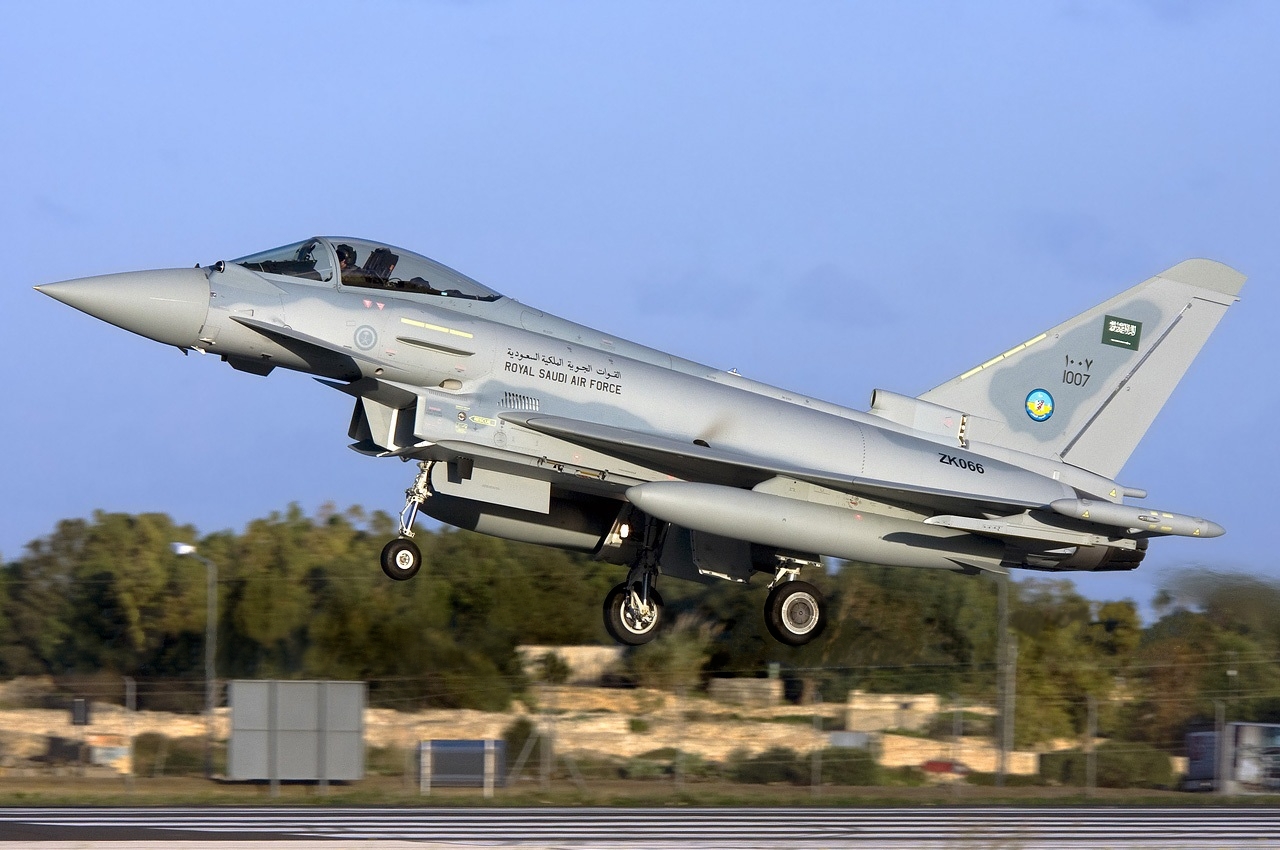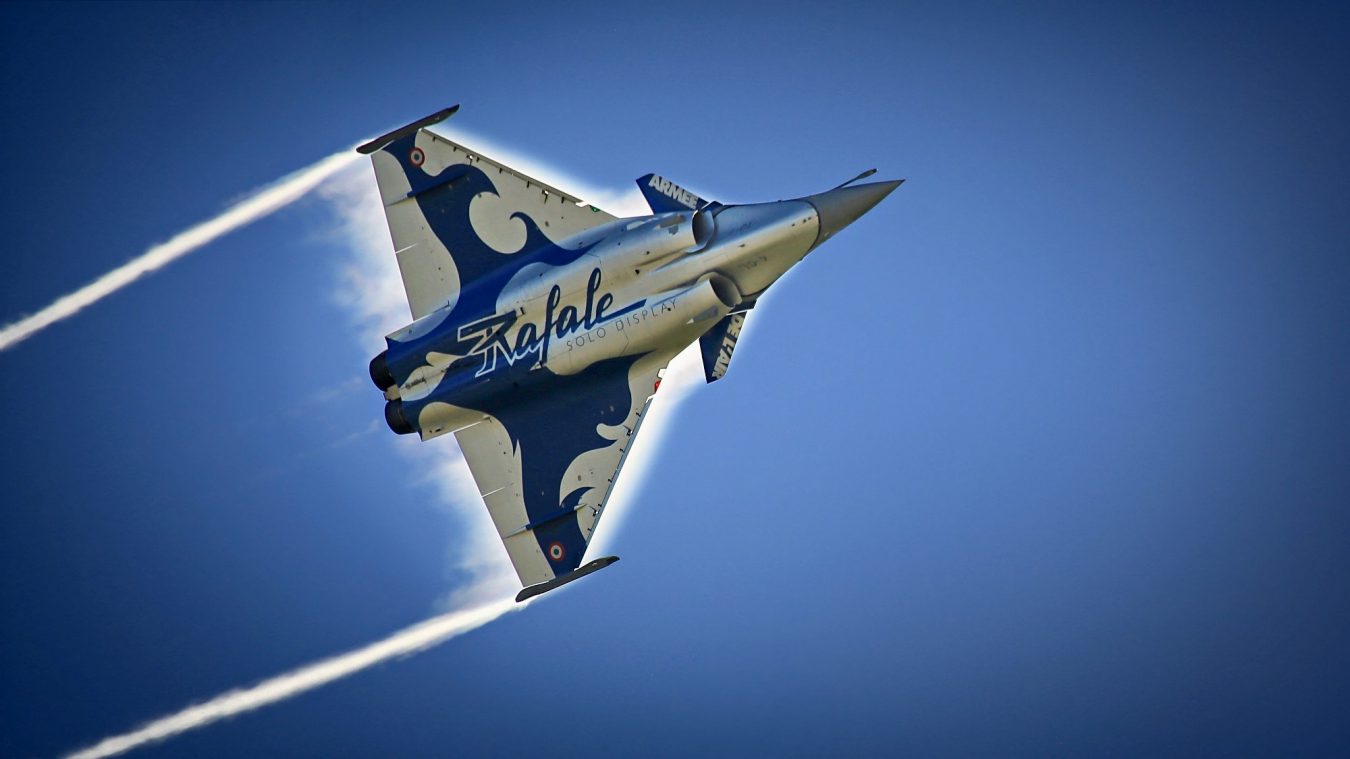Germany loosened export restrictions against Saudi Arabia earlier this year. Still, it refused to allow the sale of the 4.5th generation Eurofighter Typhoon fighter jet to the kingdom, despite the UK government’s intense lobbying. Berlin’s refusal, unfortunately, poses a significant challenge to Britain’s production lines.
US Navy’s $20 Billion Program To Develop 12 Columbia-Class Submarines In Financial Trouble
The United Kingdom is likely to see a loss of 6,000 jobs in the defense sector and no manufacturing of fighter jets for a decade in the face of Germany’s unwillingness to green-light the sale of Eurofighter Typhoon jets to the Royal Saudi Air Force, British newspaper The Sun reported.
Berlin is blocking a multibillion-dollar agreement to sell 48 Typhoons to Saudi Arabia, and ministers have threatened to “close” BAE production lines if the contract is refused. German Chancellor Olaf Scholz clarified in July this year that Germany will not deliver Eurofighter combat aircraft to Saudi Arabia soon.
The restrictions imposed by Germany are based on the fact that since 2015, Saudi Arabia has led a coalition in Yemen against the Houthis backed by Iran. That war has killed thousands of civilians and created a massive humanitarian situation in the war-torn country. Germany laments the use of Western arms in the killing of civilians in Yemen.
Moreover, following the murder of Saudi writer Jamal Khashoggi inside the Saudi consulate in Istanbul in 2018, Germany took a significantly harder stance than its main allies, the United States, France, and Britain, and stopped selling weapons to Saudi Arabia.
On its part, Britain maintains that Germany can no longer stop the supply of Eurofighter jets to Saudi Arabia after the kingdom signed a rapprochement agreement with Iran earlier this year. However, despite aggressive courting by the UK Prime Minister Rishi Sunak to allow the sale, the German Chancellor has remained steadfast in his decision to block the deal.

Britain’s BAE Systems signed a contract for the arms maker to supply 48 jets in question five years ago. However, since a third of the components for the jets come from Germany, the latter has a veto that now poses a direct challenge to BAE and the UK government.
Originally intended to be an air-superiority fighter, the Typhoon was produced by a team comprising Airbus, BAE Systems, and Leonardo. Eurofighter Jagdflugzeug GmbH, a joint holding company, primarily manages the project.
Last month, Guillaume Faury, the CEO of Airbus, criticized the German government for its tough stance on military exports. “The German government’s stance on arms exports to some countries is a real problem,” Faury told Handelsblatt. “If Germany wants to be a trustworthy partner in major defense projects, it must resolve the issue of export controls with the other Europeans and not despite them,” he added.
More than 6,000 British workers are employed directly by the Typhoon program, with a further 28,000 in the supply chain. The UK needs its air industrial base to keep going. This is attributed to one reason: the production of the sixth-generation fighter jet will start in full earnest only in the 2030s, and the Royal Air Force is replacing its Eurofighters with US-produced F-35 stealth jets. This would essentially leave a vacuum in the industry.
The refusal even prompted the largest aviation lobby group in Germany to publicly state that Germany should support attempts to extend the Eurofighter combat aircraft’s lifespan by an additional ten years to maintain engineering talent in the nation and bridge the gap to the next generation aircraft under the FCAS program, which is expected to arrive by 2040.
The closure of Typhoon production lines “without further orders” and the “theoretical GCAP production not ramping up until the 2030s” pose a £15 billion risk to the UK’s “combat air industrial base.”
However, a bigger problem may be that the German refusal to allow the delivery of the Eurofighter Typhoon jets would come at a considerable expense to this aircraft program since the Saudi Kingdom is already exploring other options and is reportedly interested in the French Dassault Rafale fighter jets.
Riyadh Could Buy Rafales
Without providing specific details, Sebastien Lecornu informed reporters last month that Dassault Aviation and Saudi Arabia had “discussions” on a possible sale of the Rafale.
Saudi Arabia, whose air force is primarily composed of American F-15s and Eurofighters, has requested a cost estimate for 54 Rafales from Dassault by November 10, according to claims in local French media. This development comes after French weapons exports reached a new high last year thanks in part to the success of the twin-engine multirole fighter aircraft Rafale.
A staunch Saudi ally and neighbor, the United Arab Emirates (UAE), which is also part of the coalition fighting Houthis in Yemen, signed a contract to purchase 80 F4 Rafale fighters, the latest variant of the 4.5-generation fighter aircraft. At the time, the agreement was labeled as historic because it was to make the Emirati Air Force the biggest operator of Rafales outside of France.

Almost two years after the UAE contract, Saudi Arabia also seems to be mulling the purchase of French aircraft as its Air Force needs an overhaul, Germany is blocking the sale of Eurofighter Typhoons, and strained ties with the United States mean it is unlikely to receive a clearance for F-35 fighters.
After months of speculations that the Saudi kingdom would relinquish its age-old tradition of using only American and British fighter jets in favor of the French Rafales, which indicates that it no longer trusts its previous fighter suppliers as much as it once did.
Behind the US-made F-15s, the Saudi Air Force’s 72 Eurofighters are the second most prevalent fighter type. This puts the Royal Saudi Air Force in a tight position and explains the kingdom’s interest in the French fighters. If Saudi Arabia joins the Rafale league, it will be the third country in the region to operate the French aircraft.
France has remained more receptive, in contrast to nations such as the US and Germany, who have traditionally adopted a more rigid stance against providing equipment that could be used to violate human rights anywhere.
For example, France has supplied Riyadh with artillery, armored vehicles, helicopters, air-to-ground Damocles targeting pods, and SCALP cruise missiles without reservation. Rafale fighters now have a favorable precedent the Saudi government will likely follow.
This, however, comes at the expense of the Eurofighter and, ultimately, the industrial base, which is giving sleepless nights to officials in the British government.
- Contact the author at sakshi.tiwari9555(at)gmail.com
- Follow EurAsian Times on Google News




